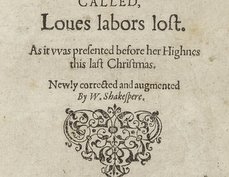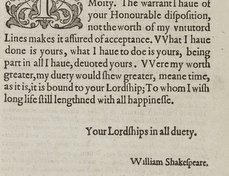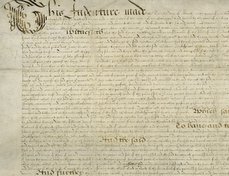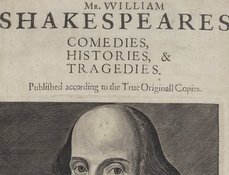A will, often called a “Last Will and Testament,” was a document giving instructions for the disposition of one’s possessions after death.
The person making the will is the testator (female: testatrix). The person receiving a bequest is a legatee or beneficiary. The person charged with carrying out the terms of a will, including presenting it for for probate, is the executor (female: executrix). A person charged with supervising the activities of the executor is the overseer.
Most wills were made by men. As a rule, women only made wills if they were widows or (rarely) mature spinsters.
Wills were written on paper or vellum, either by the testator, or by a scrivener, notary, parish minister, or other literate person. The typical will was signed (and sometimes sealed) by the testator and then signed by witnesses. Witnesses testified that the testator had subscribed his or her name or attached his or her seal; they were not necessarily privy to the contents of the will. Often, however, the will was both read aloud by the scribe and signed by the testator in the presence of the witnesses.
If a dying man or woman was physically unable to sign with a name or even a mark, or if time was short, the testator could make a verbal declaration. This verbal declaration was recorded in writing, before or after the testator’s death, and witnessed by one or more individuals who had heard the words spoken. Such a will, declared orally and signed by witnesses (not by the testator), is called a nuncupative will.
Wills might take almost any shape, even down to a single scrap of paper, and might be more or less elaborately bound, signed, and sealed. If the text did not fit onto a single sheet of parchment or paper, then some attempt might be made to secure the will against tampering. Separate sheets might be sewn into a booklet or along their tops; securing cords might be twisted, braided, knotted, and sealed. A common precaution was to declare the number of sheets which made up the will, and/or for the testator to sign each sheet.
Wills tended to the formulaic. A typical will might start with the words “In the name of God” and then would identify the testator by name, occupation, and parish. The testator might describe himself either as in good health or as sick or “crazie in bodie,” but of good memory and in full possession of his mental faculties.
The first two “properties” to be disposed of were usually (and somewhat metaphorically) the soul and body. The return of the soul back to God or other divine being (e.g. Christ and his holy angels) is often an occasion for a spiritual declaration which might (or might not) reveal sectarian inclinations. The disposition of the body is generally a direction that the body be buried in a certain parish, in a certain part of the church, near a former spouse, or at the discretion of the executor or executrix; with much, some, little, or no pomp; during the day or (to avoid parish charges) at night.
Disposition of worldly goods could be more or less elaborate, with many or few contingencies.
If the will was made by a citizen of London, one-third of the estate went to his wife, one third to his children (shared equally among them, males and females alike), and one-third (called “the dead man’s portion”) at the testator’s discretion. Some testators bequeathed both the first third and the final third to their wives. (At the time of his death, and for most if not all of his life, Shakespeare, not being a member of a livery company, was not technically a citizen of London.)
The will generally concludes with the naming of an executor or executrix, and the appointment of overseers.
Often the testator declares that the current will superseded any and all other wills which may have been written earlier.
The testator often declares that he or she has signed the will “with my own hand” and/or seal, in the presence of named witnesses.
Wills generally carry a date near the beginning, or at the conclusion; but an undated will could still be valid. Most wills were made near the time of death, but some were made any number of years in advance. (It is important to distinguish among date of the will, date of death, date of burial, and date of probate.)
After death, the will was carried, usually by the executor or executrix, to the appropriate probate office, where it was copied into a parchment register. Wills thus generally occurred in at least two copies: the original will, and the registered copy. Other copies might be made for the personal use of family members, or by interested institutions, like a parish. After death, wills became public documents, open to inspection by any presumptive legatee.
Wills of testators who owned properties of more than a minimum value in more than one parish were probated by the Prerogative Court of Canterbury (PCC), located not in Canterbury, but in the undercroft (or arches) of the church of St. Mary de Arcubus, Cheapside, London.
PCC wills, now housed at TNA, are generally of two kinds: original wills (PROB 10) and registered copies (PROB 11). TNA Documents Online provides access to images of PROB 11 registered copies (currently at a cost of £3.50 per will, regardless of length). For Shakespeare’s period, original wills survive for approximately half of all registered wills. PROB 10 wills have been folded down to a uniform size and stored in boxes organized alphabetically within date of probate. Cross-indexes are kept in red ring-binders (PROB 10).
Because original wills (PROB 10) tend to contain cross-outs, insertions, original signatures, and seals, they are of much greater documentary value than registered copies. Registered copies (PROB 11), however, may confirm the authenticity of interlinear insertions. Some PROB 10 wills are notarial copies, the original will having been kept by the testator’s family for other purposes.
With few exceptions, all original wills which carry a testator’s signature or mark were signed by the testator himself or herself. It is not the case that signatures or marks on original wills were frequently written by lawyers or scribes rather than by testators. A possible exception is the will of Augustine Phillips.
William Shakespeare’s original will, removed from its PROB 10 companions, is now preserved among “Documents of Shakespearian Interest” (PROB 1/4).The registered copy of William Shakespeare’s will (PROB 11/127/771) is available through TNA Documents Online.
Other wills on this website, which refer to Shakespeare directly or indirectly, include:
- Thomas Whittington (1601)
- Augustine Phillips (1605)
- John Combe (1614)
- Elizabeth Bernard (1670)
Written by Alan H. Nelson









